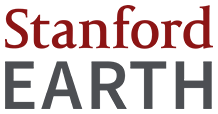The Stanford School of Earth, Energy & Environmental Sciences is now part of the Stanford Doerr School of Sustainability.
This page is currently being maintained for archival purposes only. For the latest information, please visit us here.
Graduate Research Grants
Stanford Earth Graduate Student Research Grant Program
In light of the COVID-19 pandemic, Stanford Earth is revising the research grant program for 2020. These changes are for 2020 only. There is a lifetime limit of $6,000 for these awards and a two-time limit. For 2020, proposals will be accepted in two rounds. The first round (Stanford Earth Graduate Student Research Grants) will be for smaller grants, as we are reserving funds for travel when we determine travel is permitted. Students may apply for both rounds. The first round of grants will not count toward the two-time limit, but will count toward the $6,000 lifetime limit. Individual grants will not exceed $4,000 (combined for the two rounds in 2020) and many may be smaller, depending on demand.
First Round (Stanford Earth Graduate Student Research Grants): Deadline May 11, 2020
Grants for up to $500 for work that can be completed by July 31st. Allowable expenses include research supplies, computational needs, computer hardward or software, tuition or fees associated with attending non-Stanford courses or workships, or other special research costs. Unallowable expenses: travel expenses. If you have a proposal that exceeds $500 in allowable expenses for Round 1 that you can complete by July 31st, contact Alyssa Ferree to discuss.
Purchases for 2020 First Round awards can be made using department/program purchasing cards or through reimbursement.
Second Round (McGee/Levorsen):
Individual grants will not exceed $4,000 (if students receive funding in Round 1, the maximum total funding for 2020 is $4,000). Allowable expenses: research supplies, research travel expenses, field expenses, or other special research costs. Unallowable expenses: computer hardware, travel costs/tuition/fees associated with attending non-Stanford courses or workshops, and travel costs associated with attending or presenting at professional conferences.
McGee/Levorsen grants are disbursed as a fellowship stipend check and are considered taxable income.
Application information for the second round will be announced as we learn more about the COVID-19 situation and associated restrictions.
Previous award
There is a two-time limit on these awards, as well as a lifetime limit of $6,000. If you have had previous funding from McGee/Levorsen, please indicate the date and amount when filling out your application.
Form and Length of Proposal
Proposals should be limited to no more than 3 double-spaced pages. The inclusion of lengthy appendices is discouraged. Please submit as .pdf files only. Proposals should include:
- An abstract with: a definition of the research question; a work plan; expected results and expectations for future funding.
- A budget for the project including any information about additional sources of funding.
Selection Process
Proposals will be considered competitively. Students should view this as an opportunity to develop new and exciting research ideas and to present these ideas in a concise and convincing proposal.
For questions, contact Alyssa Ferree.



